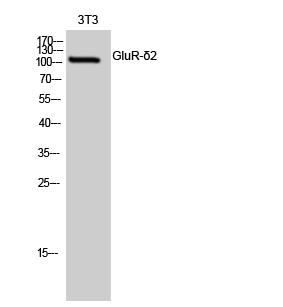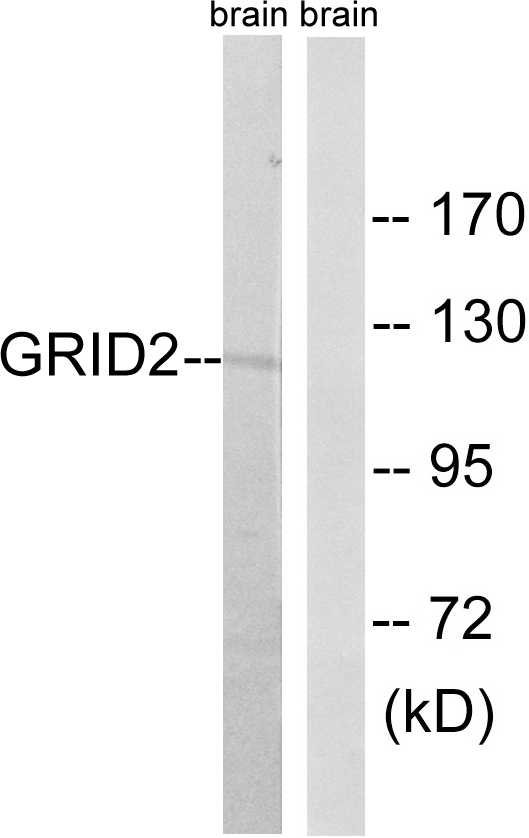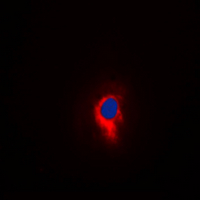
WB analysis of 3T3 cell lysate using GTX33977 GRID2 antibody.
GRID2 antibody
GTX33977
ApplicationsWestern Blot
Product group Antibodies
ReactivityHuman, Mouse
TargetGRID2
Overview
- SupplierGeneTex
- Product NameGRID2 antibody
- Delivery Days Customer9
- Application Supplier NoteWB: 1:500-1:2000. *Optimal dilutions/concentrations should be determined by the researcher.Not tested in other applications.
- ApplicationsWestern Blot
- CertificationResearch Use Only
- ClonalityPolyclonal
- Concentration1 mg/ml
- ConjugateUnconjugated
- Gene ID2895
- Target nameGRID2
- Target descriptionglutamate ionotropic receptor delta type subunit 2
- Target synonymsGluD2, SCAR18, glutamate receptor ionotropic, delta-2, gluR delta-2 subunit, glutamate receptor delta-2 subunit, glutamate receptor, ionotropic, delta 2
- HostRabbit
- IsotypeIgG
- Protein IDO43424
- Protein NameGlutamate receptor ionotropic, delta-2
- Scientific DescriptionThe protein encoded by this gene is a member of the family of ionotropic glutamate receptors which are the predominant excitatory neurotransmitter receptors in the mammalian brain. The encoded protein is a multi-pass membrane protein that is expressed selectively in cerebellar Purkinje cells. A point mutation in the mouse ortholog, associated with the phenotype named lurcher, in the heterozygous state leads to ataxia resulting from selective, cell-autonomous apoptosis of cerebellar Purkinje cells during postnatal development. Mice homozygous for this mutation die shortly after birth from massive loss of mid- and hindbrain neurons during late embryogenesis. This protein also plays a role in synapse organization between parallel fibers and Purkinje cells. Alternate splicing results in multiple transcript variants encoding distinct isoforms. Mutations in this gene cause cerebellar ataxia in humans. [provided by RefSeq, Apr 2014]
- ReactivityHuman, Mouse
- Storage Instruction-20°C or -80°C,2°C to 8°C
- UNSPSC41116161






